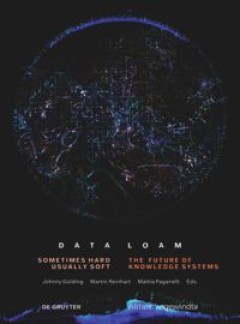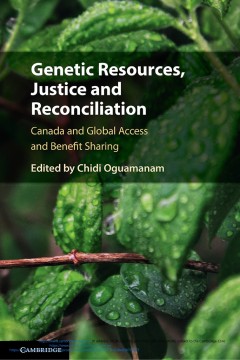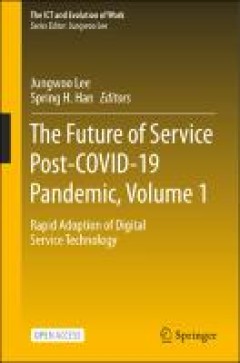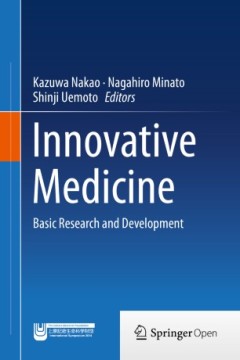Filter by

Data collection in fragile states : innovations from Africa and Beyond
Fragile countries face a triple data challenge. Up-to-date information is needed to deal with rapidly changing circumstances and to design adequate responses. Yet, fragile countries are among the most data deprived, while collecting new information in such circumstances is very challenging. This open access book presents innovations in data collection developed with decision makers in fragile c…
- Edition
- -
- ISBN/ISSN
- 9783030251208
- Collation
- xxxi, 243p. : ill.
- Series Title
- -
- Call Number
- 338.90072 DAT d

Mesopotamian eye disease texts : the nineveh treatise
There is to date no comprehensive treatment of eye disease texts from ancient Mesopotamia, and no English translation of this material is available. This volume is the first complete edition and commentary on Mesopotamian medicine from Nineveh dealing with diseases of the eye. This ancient work, languishing in British Museum archives since the 19th century, is preserved on several large cuneifo…
- Edition
- -
- ISBN/ISSN
- 9781501506550
- Collation
- XII, 404 p.
- Series Title
- Die babylonisch-assyrische Medizin in Texten und Untersuchungen
- Call Number
- 610 GEL m

Data loam: sometimes hard, usually soft, the future of knowledge systems
As a reaction to the dominant effect and interpretive authority of the digital, Data Loam combines radical approaches based on positions taken in the international practice of contemporary art. Previously: insistence on indexicality and the instrumental reduction of knowledge. Instead: a new metric that requires play, curiosity, experiment, and risk. As an urgent response to the continually …
- Edition
- Edition Angewandte
- ISBN/ISSN
- 9783110697841
- Collation
- 496 p.
- Series Title
- -
- Call Number
- 700 DAT d

E-science : open, social and virtual technology for research collaboration
This open access book shows the breadth and various facets of e-Science, while also illustrating their shared core. Changes in scientific work are driven by the shift to grid-based worlds, the use of information and communication systems, and the existential infrastructure, which includes global collaboration. In this context, the book addresses emerging issues such as open access, collaborati…
- Edition
- -
- ISBN/ISSN
- 9783030662622
- Collation
- xii, 185p. : ill.
- Series Title
- -
- Call Number
- 507.2 ELE e

Malarial subjects : empire, medicine and nonhumans in British India, 1820-1909
Malaria was considered one of the most widespread disease-causing entities in the nineteenth century. It was associated with a variety of frailties far beyond fevers, ranging from idiocy to impotence. And yet, it was not a self-contained category. The reconsolidation of malaria as a diagnostic category during this period happened within a wider context in which cinchona plants and their most va…
- Edition
- -
- ISBN/ISSN
- 9781316771617
- Collation
- xv, 332p. : ill.
- Series Title
- -
- Call Number
- 616.936200954 ROY m

Genetic resources, justice and reconciliation : Canada and global access and …
When the oral history of a medicinal plant as a genetic resource is used to develop a blockbuster drug, how is the contribution of indigenous peoples recognized in research and commercialization? What other ethical, legal, and policy issues come into play? Is it accurate for countries to self-identify as users or providers of genetic resources? This edited collection, which focuses on Canada, i…
- Edition
- -
- ISBN/ISSN
- 9781108557122
- Collation
- xix, 279p. : ill.
- Series Title
- -
- Call Number
- 346.710469534 GEN g

The future of service post-COVID-19 pandemic, Volume 1 : rapid adoption of di…
This open access book is geared towards providing insights and stimulating new thinking about the changing nature of services, service work and workers, and service experiences during and after the COVID-19 pandemic in 2020, particularly focusing on digital service technology. This book serves as a useful resource for business practitioners and academics in the areas of service and human resour…
- Edition
- -
- ISBN/ISSN
- 9789813341265
- Collation
- XII, 225 p
- Series Title
- The ICT and Evolution of Work,
- Call Number
- 330.9 FUT f

Disasters and history : the vulnerability and resilience of past societies
Disasters and History offers the first comprehensive historical overview of hazards and disasters. Drawing on a range of case studies, including the Black Death, the Lisbon earthquake of 1755 and the Fukushima disaster, the authors examine how societies dealt with shocks and hazards and their potentially disastrous outcomes. They reveal the ways in which the consequences and outcomes of these d…
- Edition
- -
- ISBN/ISSN
- 9781108569743
- Collation
- x, 231p. : ill.
- Series Title
- -
- Call Number
- 363.3409 DIS d

The potato crop : its agricultural, nutritional and social contribution to hu…
This book provides a fresh, updated and science-based perspective on the current status and prospects of the diverse array of topics related to the potato, and was written by distinguished scientists with hands-on global experience in research aspects related to potato. The potato is the third most important global food crop in terms of consumption. Being the only vegetatively propagated specie…
- Edition
- -
- ISBN/ISSN
- 9783030286835
- Collation
- xvii, 518p. : ill.
- Series Title
- -
- Call Number
- 635.21 POT p

Innovative medicine : basic research and development
This book is devoted to innovative medicine, comprising the proceedings of the Uehara Memorial Foundation Symposium 2014. It remains extremely rare for the findings of basic research to be developed into clinical applications, and it takes a long time for the process to be achieved. The task of advancing the development of basic research into clinical reality lies with translational science, ye…
- Edition
- -
- ISBN/ISSN
- 9784431556510
- Collation
- ix, 339p. : ill.
- Series Title
- -
- Call Number
- 610.28 KAZ i
 Computer Science, Information & General Works
Computer Science, Information & General Works  Philosophy & Psychology
Philosophy & Psychology  Religion
Religion  Social Sciences
Social Sciences  Language
Language  Pure Science
Pure Science  Applied Sciences
Applied Sciences  Art & Recreation
Art & Recreation  Literature
Literature  History & Geography
History & Geography